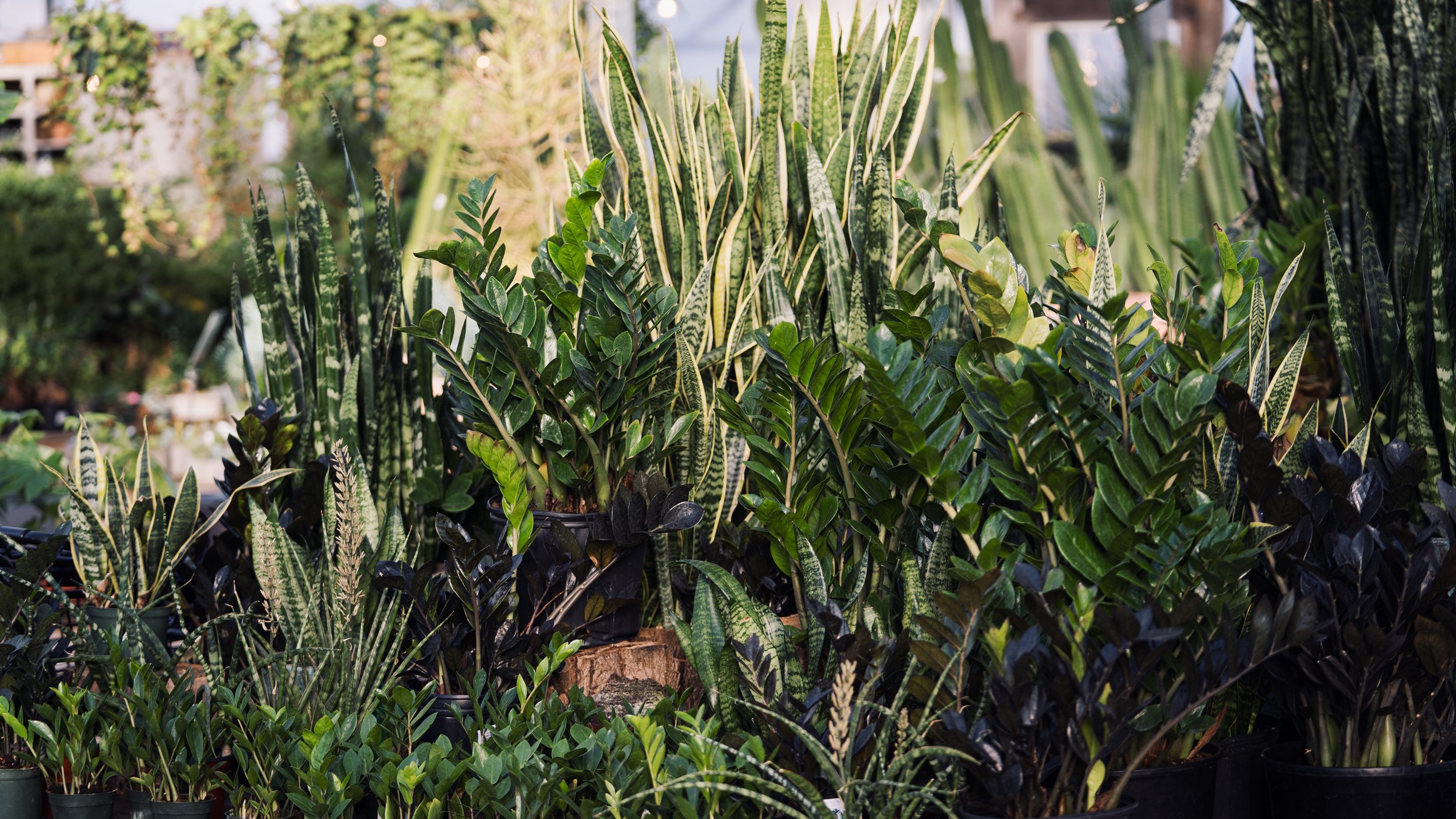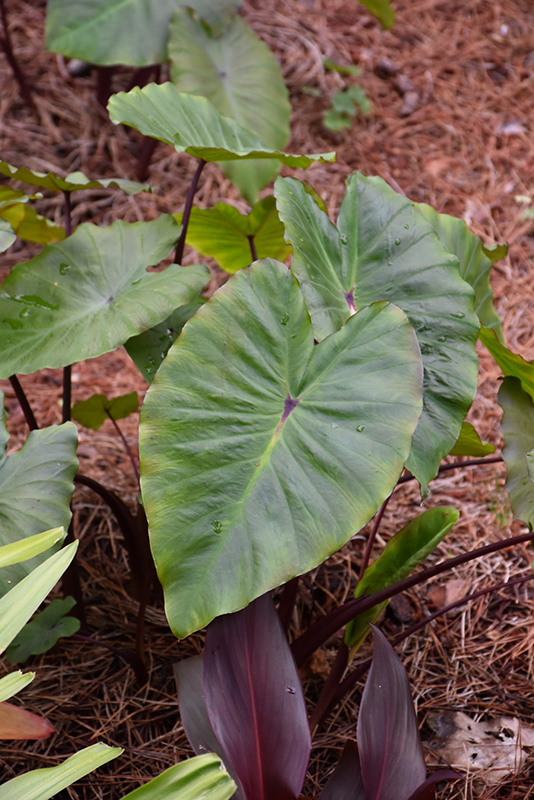
use our plant finder to help choose the perfect tree, shrub, perennial, annual, or houseplant to match your unique needs & style.
all the plants we love
Height: 8 feet
Spread: 6 feet
Sunlight:
![]()
![]()
Other Names: Alocasia, Taro
Description:
Enormous, scalloped leaves on strong purple stalks, emerge from the center of this fast-growing hybrid, and can reach up to 8 feet; elegant as a large accent or screen; can tolerate some cold and grows well in containers
Features & Attributes
Portora Elephant's Ear's attractive enormous crinkled heart-shaped leaves emerge light green, turning bluish-green in color throughout the year on a plant with an upright spreading habit of growth. It features solitary conical creamy white hooded flowers with white centers rising above the foliage in mid summer. The purple stems are very effective and add to the plant's interest.
This is an open herbaceous evergreen houseplant with an upright spreading habit of growth. This plant usually looks its best without pruning, although it will tolerate pruning.
Planting & Growing
When grown indoors, Portora Elephant's Ear can be expected to grow to be about 8 feet tall at maturity, with a spread of 6 feet. It grows at a medium rate, and under ideal conditions can be expected to live for approximately 5 years. This houseplant will do well in a location that gets either direct or indirect sunlight, although it will usually require a more brightly-lit environment than what artificial indoor lighting alone can provide. It is quite adaptable, prefering to grow in average to wet conditions, and will even tolerate some standing water. The surface of the soil should be kept consistently moist all of the time, and you should expect to water this plant two or more times each week, especially if it's growing in a low-humidity environment. Be aware that your particular watering schedule may vary depending on its location in the room, the pot size, plant size and other conditions; if in doubt, ask one of our experts in the store for advice. It is not particular as to soil pH, but grows best in rich soil. Contact the store for specific recommendations on pre-mixed potting soil for this plant. Be warned that parts of this plant are known to be toxic to humans and animals, so special care should be exercised if growing it around children and pets.
There are many factors that will affect the ultimate height, spread and overall performance of a plant when grown indoors; among them, the size of the pot it's growing in, the amount of light it receives, watering frequency, the pruning regimen and repotting schedule. Use the information described here as a guideline only; individual performance can and will vary. Please contact the store to speak with one of our experts if you are interested in further details concerning recommendations on pot size, watering, pruning, repotting, etc.
-- THIS IS A HOUSEPLANT AND IS NOT MEANT TO SURVIVE THE WINTER OUTDOORS IN OUR CLIMATE --
can’t find what you’re looking for? let us know
info@wilsonnurseriesky.com
frankfort: 502.223.1488
lexington: 859.269.5795

